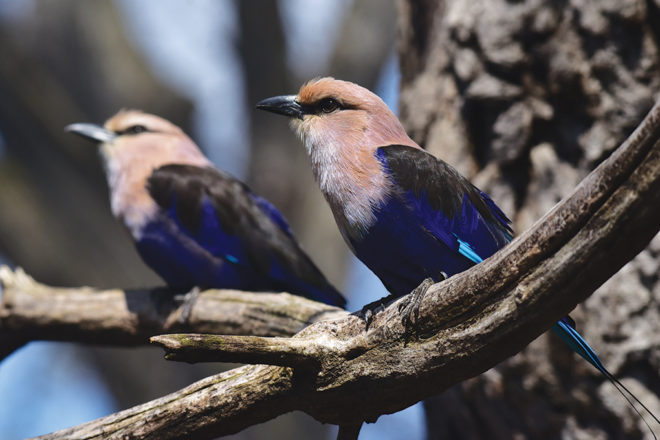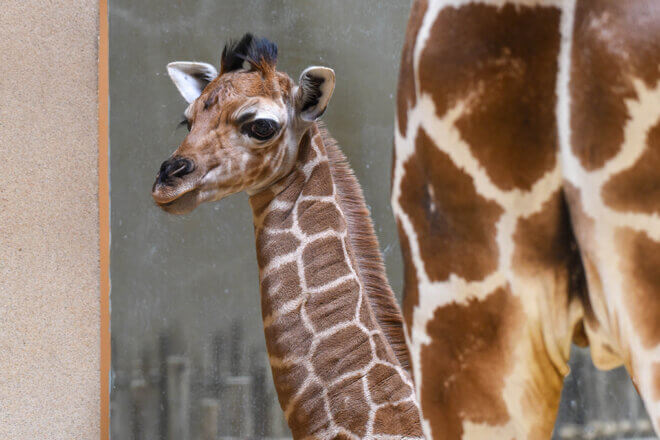Cases of avian flu have been confirmed across the US and Canada, including here in Maryland. This strain of the disease is highly contagious and lethal to birds. As a precautionary measure, we have closed our aviaries, modified exhibits to protect our birds, and instituted strict protocols for anyone entering bird areas.
Frequently Asked Questions
Q: What is Avian Influenza?
A: Avian influenza, also known as the bird flu, is a highly contagious virus that infects wild and domestic birds. It’s typically spread by wild birds during seasonal migrations.
Bird Flu can occur in two different forms: Low Pathogenicity Avian Influenza (LPAI), which causes no, or very low symptoms in most cases, and High Pathogenicity Avian Influenza (HPAI), which is deadly and poses a significant risk to domestic and farm birds. This more dangerous HPAI strain (H5N1) is what’s currently spreading.
HPAI is a particular concern to domestic and commercially-raised poultry (chickens, turkeys, etc.) resulting in the loss of flocks and causing serious financial harm to the poultry industry.
Q: Where are the current cases of Bird Flu and which strain has been detected?
A: Since December 2021, HPAI has been confirmed in every US state and around the globe, even Antarctica.
Q: What is the concern around the virus?
A: HPAI is deadly to domestic poultry and in many cases, entire flocks have had to be culled in an effort to stop its spread. For this reason, HPAI is a reportable disease, which means that a veterinarian has a legal duty to report any birds with suspicious signs to the Maryland State Veterinarian and US Department of Agriculture (USDA) who then dictate the responses when Avian Flu is confirmed.
Extensive Federal and international regulations are in place to safeguard the agricultural and human food supply, the US economy, and trade.
Q: Are people at risk from Avian Flu?
A: The Centers for Disease Control and Prevention (CDC) considers the risk to the general public to be low. While rare, there have been several recent cases of human infection, mostly among dairy and poultry workers, according to the CDC, which is watching the situation carefully and working with states to monitor people with animal exposures.
Affected birds shed the virus in their saliva, mucus, and feces. Avoiding direct animal or waste contact, and frequent hand washing are effective at keeping people healthy.
Q: Are Zoo birds at risk?
A: HPAI is deadly to all birds, including the rare and endangered species at the Zoo, so we take it very seriously.
Q: What is the Maryland Zoo doing to keep its birds safe?
A: We have activated a detailed, multi-tiered response plan that has been reviewed by the US Department of Agriculture, the Maryland State Veterinarian, the Maryland Department of Natural Resources, and the Maryland Department of Health. We continue to work closely with them on situational monitoring and response.
Our protocols are updated frequently depending on the disease risk in the region. Precautions taken that you may see when you visit include us closing the two aviaries (the birds inside are still visible), screening staff and visitors who will be in proximity to birds, and requiring guests of the Penguin Encounter to change into Zoo-provided footwear prior to entering since the virus can be tracked on shoes.
Q: What is the Zoo doing to protect its staff, visitors, and volunteers?
A: Just as we do with our birds, we monitor the health of our staff and volunteers and have instituted precautions for staff members who work directly with our birds, including special handling and sanitation procedures.
Q: How long could the threat of Avian Flu last?
A: Typically, outbreaks coincide with the spring and fall bird migrations. The strict measures put in place by the federal and state governments typically limit the duration of an event. As with any virus, there is no way to pinpoint an endpoint, but in past outbreaks in the United States, intensive management and containment by the US Department of Agriculture continued through the summer months.
Q: I keep chickens on my property. What should I do?
A: Anyone who owns domestic poultry or is around wild birds should read the USDA’s recommended steps to increase the biosecurity of backyard poultry flocks.





Share this article